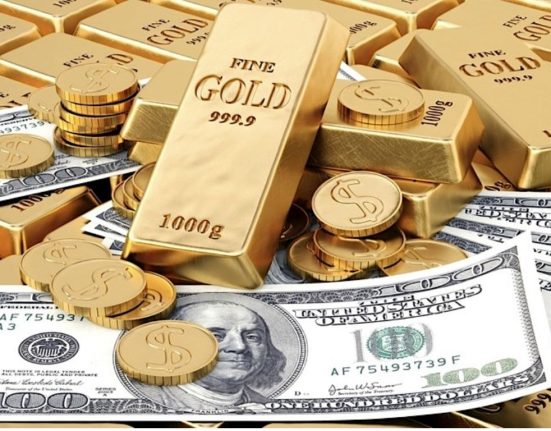The price of gold experienced a significant decline, falling below the $1,900 threshold and hitting a 3.5-month low in the previous day’s trading session. This drop was primarily fueled by robust US economic data, which heightened expectations that the Federal Reserve would announce additional interest rate hikes in the near future. Furthermore, comments made by Fed Chair Jerome Powell and Atlanta Federal Reserve President Raphael Bostic further bolstered these expectations. Amidst these developments, the People’s Bank of China (PBoC) actively defended the value of the Yuan, even at substantial costs, while China’s PMI remained below 50.0, adding further downward pressure to the price of gold.
Impact of Strong US Data on Gold Price
The decline in gold price can be attributed to the release of robust economic data from the United States. This data pointed towards a strengthening economy, prompting speculation that the Federal Reserve would respond with more aggressive interest rate hikes. As the prospect of higher interest rates increased, investors shifted their focus towards traditional assets that offer potential returns in a rising rate environment, diverting their attention away from non-interest-bearing assets such as gold. This shift in investor sentiment exerted downward pressure on the gold price, leading to its decline below the $1,900 mark.
Influence of Federal Reserve Chair and Atlanta Fed President Comments
The gold market was further impacted by comments made by key Federal Reserve officials. Fed Chair Jerome Powell and Atlanta Federal Reserve President Raphael Bostic both made statements that contributed to the growing speculation of imminent rate hikes. Powell expressed optimism about the US economic recovery, suggesting that it may be appropriate to consider tapering the central bank’s bond-buying program sooner than expected. Bostic echoed similar sentiments, emphasizing the need to address inflationary pressures by tightening monetary policy. These remarks added to the belief that the Federal Reserve would take a more hawkish stance, increasing the likelihood of future interest rate hikes and dampening the appeal of gold as an investment.
People’s Bank of China’s Defense of Yuan and China PMI Impact
While developments in the United States played a significant role in the gold price drop, global factors also contributed to the decline. The People’s Bank of China (PBoC) took proactive measures to defend the value of the Yuan, even at substantial costs. By maintaining a strong Yuan, the PBoC aimed to stabilize its currency and support economic growth. This defense of the Yuan, coupled with China’s Purchasing Managers’ Index (PMI) remaining below the critical 50.0 level, created additional downward pressure on the gold price. Investors interpreted these factors as signs of a potential slowdown in the Chinese economy, prompting a shift away from gold and towards other assets.
Conclusion
In conclusion, the gold price dropped below the $1,900 threshold and reached a 3.5-month low due to a combination of factors. Strong US economic data, along with comments from Federal Reserve officials such as Jerome Powell and Raphael Bostic, heightened expectations of more interest rate hikes. This shift in market sentiment led investors to favor interest-bearing assets over non-interest-bearing ones like gold. Furthermore, the People’s Bank of China’s defense of the Yuan and China’s PMI remaining below 50.0 contributed to the downward pressure on the gold price. As investors reassessed their portfolios in light of these developments, gold experienced a significant decline.










